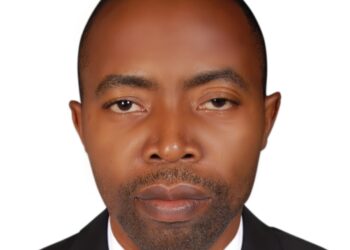By Dr Ian Clarke
It is difficult to carry out experiments in quantum physics because the very act of measurement and observation changes the behavior of what is being measured. This principle also applies to the recent BBC documentary about Ugandan health workers stealing drugs. The title was ‘Stealing from the Sick’ with the implication that this form of theft is worse than other types of theft.
The filmmakers set up a sting operation whereby two journalists posed as businessmen from DRC on a mission to buy Ugandan government drugs. Hence they went around Uganda offering cash to various dubious characters, and met several low-level health workers to whom they offered large amounts of money to procure government drugs and vaccines. On one occasion 50 vials of hepatitis B vaccine were delivered to them on a Ministry of Health motorcycle. On another occasion they filled up their van with boxes of stolen government drugs obtained from various small clinics.
The documentary was indeed an indictment of stealing within the health sector in Uganda, but it was also not surprising. If anyone offers a large quantity of cash as an incentive to some ordinary Ugandans to steal drugs they will get people who will take advantage of the opportunity. This is because most Ugandans make ends meet through hustling, which means opportunism. So if the opportunity to make some money from pilfering government drugs comes along, many ordinary Ugandans will take it.
This does not mean that they are professional thieves, because if there is no opportunity they will not steal, which is why the investigative journalists changed the behavior of the people they were investigating by the very act of offering them an incentive to steal.
In Uganda there is a prevailing attitude that one must take advantage of every opportunity for survival, since it might never present itself again. This is why those who are first at the scene of a road accident steal the phones and valuables of the victims before they come to their assistance. They reason that if they don’t do it first, they will simply be passing on the opportunity to the next person. This is also why people incinerate themselves when they rush to collect petrol at the scene of a crashed fuel tanker – because the desire to take advantage of the opportunity is far stronger than the desire to exercise caution.
One can appreciate this sense of desperation in the lower levels of society where people live hand to mouth, not knowing where the next meal is coming from. However, throughout all levels of society, high and low, there is another prevailing attitude that I will call ‘sanctioned theft’. Many people take bribes or steal not because they are desperate, but because everyone else is doing it and it has become acceptable.
One could say that such people have no moral principles, which may or may not be true, but they justify their behavior by seeing that it has become the norm and therefore is acceptable. In particular, they look at the leadership in the country and see how those involved in politics and the top echelons have gotten rich quickly through the use of their position.
There is another common attitude – that one has to find an underhand way of closing the deal, or one must use a backdoor to gain some advantage on a purchase. Indeed a certain type of Ugandan cannot do anything in a straightforward manner, because he feels he can only gain an advantage by finding a backdoor route for everything, This is why we have many ‘fixers’ in our society: people who exist through claiming that they can fix meeting with the President, that they can find another route to obtain the goods cheaper than the advertised price, or they can make the necessary introduction to get the business on its feet.
A certain type of Ugandan will always look for such a way of doing business and is therefore vulnerable to being duped himself. There are people who will not do anything straight but will look for middleman who can get the goods, or make the ‘deal’.
No Ugandan was shocked that workers in health facilities stole drugs, because that is how it is: the person was just hustling like everyone else. However, in the midst of this environment we should not forget that there are still principled Ugandans who do not steal under any circumstances, who do take the straight path and do business properly. In such an environment these are the real heroes and these are the people the BBC should really have made the documentary about.
Do you have a story in your community or an opinion to share with us: Email us at editorial@watchdoguganda.com











